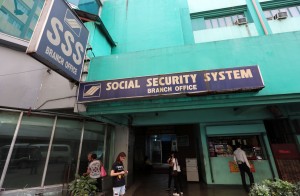Presidential Adviser for Entrepreneurship Joey Concepcion called on the government to consider relaxing quarantine protocols for international visitors, saying the requirements to enter the country had become unnecessarily complicated.
Concepcion particularly suggested a review of current policies on facility-based quarantine regulations and the use of reverse transcription-polymerase chain reaction (RT-PCR) tests.
The government, the businessman said, should instead opt for regulations leaning more toward home-based isolation and antigen tests for incoming travelers.
Risk level per country
“It is quite understandable that public health should be the primary concern of governments. But as COVID itself changes, policy should be also open to re-examination,” Concepcion said in a statement on Thursday, “The entry requirements are so extensive and complicated that they put the country out of the reach of international visitors, and even our returning kababayans,” he added.
The Philippines currently applies different rules on international arrivals depending on the passengers’ point of origin and vaccination status. Countries are categorized and color-coded based on their prevailing risk level of COVID-19 contagion.
All arriving passengers must test negative from an RT-PCR test, which would be taken 48 hours before departure from the country of origin. For example, if a passenger flew from a country under the “moderate risk” yellow list, he or she should stay first in a quarantine facility upon arrival until the release of the negative test result.
Instead of facility-based quarantine, Concepcion is pushing for one that is home-based.
‘Accept the fact’
He also said the cheaper, more practical antigen test taken 24 hours prior to departure would suffice. But as an additional safeguard, he suggested that passengers take another antigen test upon arrival.
Citing Thailand, Switzerland and the United States as examples, Concepcion said other countries had already relaxed their international travel restrictions, which were no longer as restrictive as those in the Philippines.
“Other countries seem to have already accepted the fact that COVID is here to stay. Maybe it’s time we practice living with COVID or else the Philippine economy will suffer and along with it, its MSMEs [micro, small, and medium-sized enterprises],” he said.
“We have already started taking the necessary steps by vaccinating and boosting the population. We have moved from prevention to treatment, thanks to efforts to make accessible antiviral medicines like Molnupiravir, which, from my own personal experience, seems to work,” he added. —Roy Stephen C. Canivel


